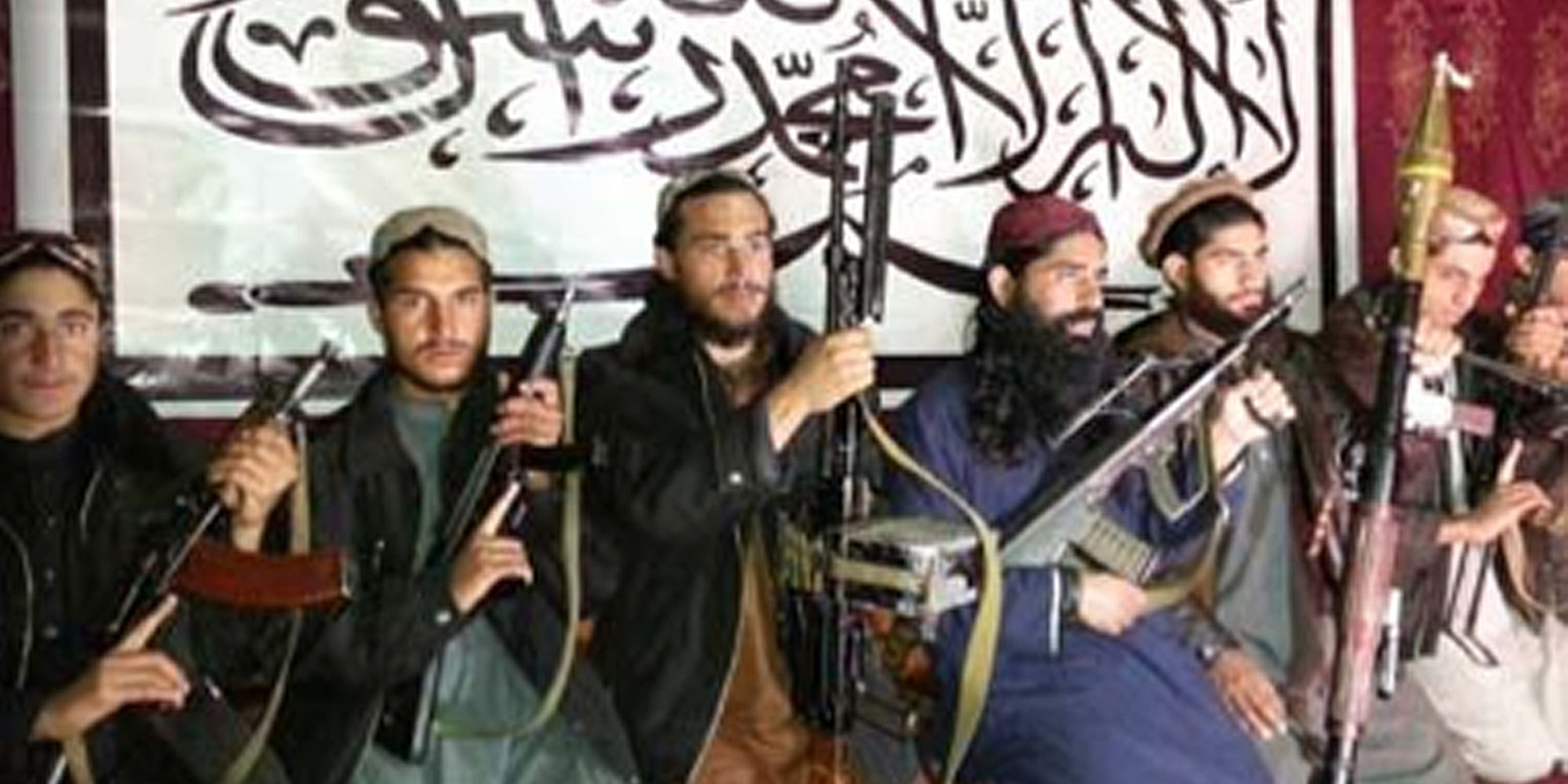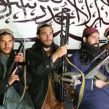
The Pakistani Taliban after the Peshawar School Attack
Publication: Terrorism Monitor Volume: 13 Issue: 1
By:

The dramatic December 16 attack on the Army Public School in Peshawar by the Fazlullah faction of Tehrik-e-Taliban Pakistan (TTP-F) brought renewed global attention to the TTP, a grouping of more than 40 separate terrorist and militant organizations. The attack was carried out by six TTP-F militants who breached the security parameter of the school in the morning of December 16 and then immediately began to shoot indiscriminately. The military and security forces responded by storming the compound, killing all the attackers and fully retaking the school by the end of the day (Newsweek Pakistan, December 16, 2014). The attack killed 145 people (including 132 students, mostly in the 9th grade) in total (Dawn [Karachi], December 18, 2014).
The TTP-F faction is led by Fazlullah (real name Fazal Hayat, a.k.a. “Mullah Radio”), although responsibility for the attack was claimed by its spokesperson Muhammad Khalid Khorasani (Express Tribune [Karachi], December 16, 2014). Fazlullah had been selected as the new amir of the TTP after the death of the group’s former amir, Hakimullah Mahsud, in a drone strike in Pakistan’s South Waziristan region in November 2013. The TTP-F is based in the neighboring semi-autonomous North Waziristan district, which is also part of Pakistan’s Federally Administered Tribal Areas (FATA).
Motives
The TTP-F’s spokesperson Muhammad Khorasani explained the attack on the military-run school as follows: “We selected the army’s school for the attack because the government is targeting our families and females… We want them to feel the pain” (al-Arabiya, December 16, 2014). To an extent, therefore, the Peshawar school attack shows the frustration among TTP ranks at the government’s on-going Zarb-e-Azb military operation in North Waziristan, which is both inflicting heavy casualties on the TTP and degrading the group’s capabilities. Such frustrations – the resulting lashing out by militants – echo the 2004 school hostage massacre in Beslan in North Ossetia, the Russian Federation, where Chechen Islamists killed 330 people (most of them school children), partly in response to Russian military operations in Chechnya, which were then causing extensive casualties to the group (BBC, March 4, 2005).
At the same time, however, the Peshawar attack should also be seen in the context of the long-standing friction between local militants, including between militants closely linked to Fazlullah, and the Pakistani state. For instance, Fazlullah’s father-in-law, Sufi Muhammad, a veteran Islamist and the amir of the TTP sub-group Tehrik-e Nifaz-e Shariat-e Mohammadi (TNSM), was instrumental in staging two previous Islamist revolts in the same region. The first, the 1994 Swat revolt, was crushed by military. The magnitude of this uprising was such, however, that the military had had to call in airstrikes to bomb militants positioned on mountaintops. The second, less violent, revolt occurred in 2001 when Sufi Muhammad instigated his followers to fight against the U.S. forces in Afghanistan in October 2001, amid the then ongoing U.S. invasion of that country. [1]
Following the 2001 uprising, Sufi Muhammad was incarcerated by the state, leading to his son-in-law Fazlullah taking on more militant operations in Swat district, no doubt partly motivated by personal and familial grievances. Responding to Operation Silence, the Pakistani government’s military operation against Islamist militants at the Red Mosque in Islamabad in July 2007, and related events, throughout 2008 Fazlullah accelerated his efforts to gain further control in Swat valley and to drive government functionaries out of the region. This in turn prompted a series of military operations in Swat and the tribal areas during 2008 and 2009. [2]
With the death of Hakimullah Mahsud, the amir of TTP, in a November 2013 drone strike, Fazlullah was selected as the new amir by the TTP shura council. The selection of Fazlullah was disputed by other TTP members, however, as he does not hail from the Mahsud or Wazir tribes, from which TTP amirs have mostly been selected. In protest at his appointment, a group of senior commanders under the leadership of the TTP’s Mohmand district chapter established a new faction, called Jamaat-ul Ahrar, in September 2014 (Dawn [Karachi], September 4, 2014). In addition, some other TTP leaders in October 2014 parted ways with Fazalullah and pledged allegiance to Islamic State amir Abu Bakr al-Baghdadi instead (Dawn [Karachi], October 15, 2014). In addition to being partly motivated by revenge, the Peshawar attack can therefore be seen as an attempt by Fazlullah to demonstrate his authority over his rivals and to re-assert his militant credentials.
Growing Radicalism
At the same time, the Peshawar attack is evidence of a new and more hardline generation of TTP operatives coming to the fore. This new breed appears to be more ruthless and fanatical in perpetrating acts of terrorism. In particular, although Fazlullah and previous TTP leaders belonged to the highly conservative Deobandi sect, recent operations have suggested an even more pronounced drift towards takfiri ideology. For instance, the killing of children on such a large and deliberate scale is a relatively new departure for the TTP. It is however highly reminiscent of the actions of takfiri groups such as the Armed Islamic Group (Groupe Islamique Armé – GIA) during the Algerian Civil War as well as of hardline Chechen and other groups elsewhere in the Islamic world.
Evidence of this trend towards greater radicalization is that the Peshawar school operation was planned by one such new generation member of TTP, an Islamist militant called Umar Mansoor Darra, alias Umar Khalifa Adenzai. Adenzai, the 36-year-old commander of the attack, was not widely known in jihadi circles in Pakistan, although he is reportedly very close to Fazlullah. Mansoor had previously commanded the TTP-F in the Dera Adam Khel region in the outskirts of Peshawar. His group is reported to have been involved in the June 2014 shooting attack on a Pakistan International Airlines flight arriving in Peshawar, which killed a female passenger, and the March 2013 attack on Peshawar district courts. [3] With the defection of the TTP-F’s Peshawar commander, Ahsan Swati, to the Islamic State, Mansoor was given the additional role of leading the TTP-F in Peshawar (The News International [Karachi], December 18, 2014). In light of that new operational responsibility, Mansoor planned and executed the terrorist attack on the school, reportedly instructing the attackers to kill any student who appeared to have reached adolescence.
Mansoor also later said of the Peshawar school attack: “If our women and children die as martyrs, your children will not escape. We will fight against you in such a style that you attack us and we will take revenge on innocents” (Hindustan Times, December 20, 2014). In another statement on the supposed future role of children studying at a military-owned school, he said that the school was guilty of “preparing those generals, brigadiers and majors who killed and arrested so many fighters,” further underlining the key role of revenge as a motivation for the attack (Newsweek Pakistan, December 19, 2014).
Conclusion
The Peshawar school attack has underlined that the TTP remains an active, ambitious and increasingly radical group, even though since 2006 several key TTP commanders and amirs have been eliminated, and others have been incarcerated by U.S., Afghan and Pakistan forces. In response to the attacks, the Pakistani government is likely to take some stronger steps against militancy; already it has suspended the 2008 death penalty moratorium and has executed several imprisoned militants (Daily Times [Lahore], December 18, 2014). At the same time, however, it remains to be seen whether Pakistan’s new commitment to tackling terrorism can be sustained. In the meantime, recent events suggest that the new generation of Pakistani jihadists, led by TTP, is all set to step up their activities, including to increasingly hit soft targets. The TTP’s patron al-Qaeda is additionally set to stage a comeback in Pakistan as the ISAF drawdown in Afghanistan continues, and amid the increasing ideological influence of the Islamic State in Pakistan and in other parts of the region. In view of this, the TTP’s school attack may be seen as a sign of further attacks to come.
Farhan Zahid writes on counter-terrorism, al-Qaeda, Pakistani al-Qaeda-linked groups, Islamist violent non-state actors in Pakistan, militant landscapes in Pakistan and the Afghan Taliban.
Notes
1. Sufi Muhammad was long associated with Islamist political party Jamaat-e-Islami Pakistan and remained district president of Jamaat-e-Islami until 1986, when he formed his own party.
2. Operation Rah-e-Rast was conducted against the Swat militants and a further operation, Rah-e-Nijat, was launched by the government when Islamist militants from Swat found refuge with TTP in the tribal areas.
3. Author discussion with Islamabad-based journalist who is contact with TTP-F spokesperson Muhammad Khalid Khorasani, December 19, 2014.





